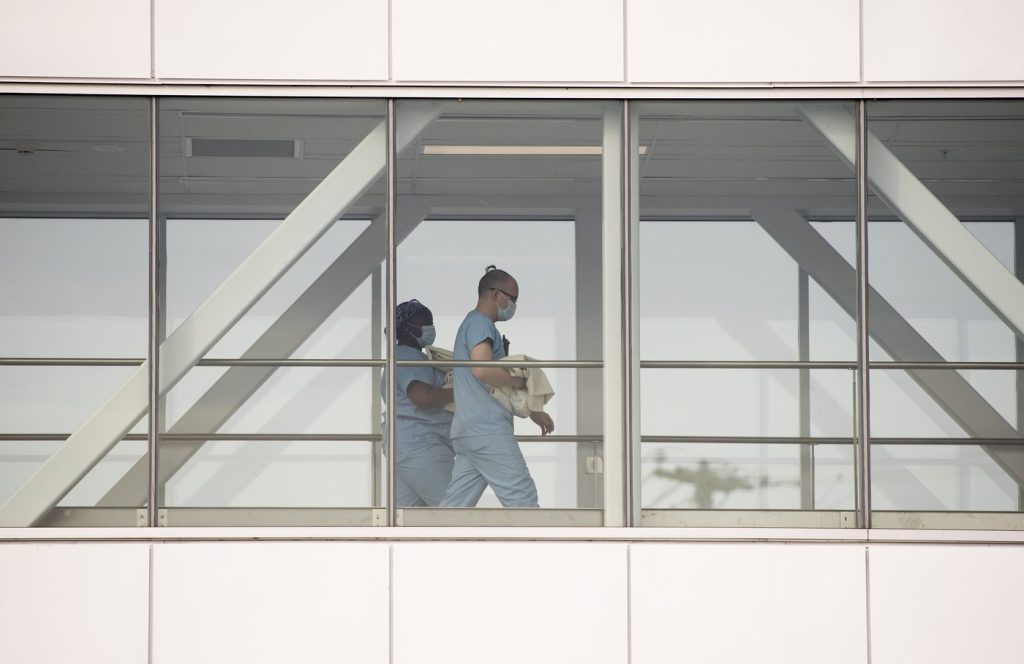JOLIETTE — Dr. Nathalie Allard, a veteran palliative care physician, has dedicated nearly 30 years to providing end-of-life care in challenging hospital environments. On Thursday, she celebrated the opening of a new palliative care facility northeast of Montreal, highlighting a place that embodies the ideal setting for both her professional practice and her final days. “It’s my workplace — and my final resting place, probably,” she stated with a smile, acknowledging the inevitability of death.
The newly inaugurated facility, located in St-Charles-Borromée in the Lanaudière region, represents a significant investment of $8 million. It features 10 rooms dedicated to palliative care patients nearing the end of their lives, along with outpatient services aimed at enhancing comfort for those with terminal illnesses. Notably, the facility includes a specialized unit for medical assistance in dying (MAID), providing accommodations for families to spend final moments with their loved ones in a supportive environment, with space for gatherings of up to 20 people.
Local health care professionals recognize this facility as a vital resource in meeting the increasing need for end-of-life services, notably MAID, which constitutes over 10% of deaths in the Lanaudière region. The launch event for the facility, held under a decorative white tent, felt more celebratory than formal, showcasing the community's embrace of this new resource.
Although Dr. Allard does not administer MAID herself, she advocates for viewing the end of life, including doctor-assisted deaths, as a moment for celebration. “We celebrate weddings; we prepare for a wedding. I won’t disappoint you, but we’re all going to die. So why not prepare for this great moment and celebrate this great moment which is our death?” she posed.
Demographically, Lanaudière is distinguishing itself through its aging population. The region boasts a higher-than-average number of older adults and experiences the highest rate of medically-assisted death in Quebec. According to the provincial end-of-life commission, more than 5,700 individuals accessed MAID in Quebec between April 1, 2023, and March 31, 2024, reflecting a consistent rise in demand, although the rate of increase has begun to level off.
In Quebec, MAID accounts for 7.3% of all deaths, with an even higher rate of 12.4% in Lanaudière’s health region. Dr. Louis Daigle, a physician and MAID provider in the area, reported providing MAID approximately 80 times annually, occasionally performing the procedure multiple times a day. He highlighted the complexity behind the higher rates of MAID in Quebec, attributing it to various factors such as personal beliefs, religious considerations, and the province's social acceptance of such practices.
François St-Louis, a representative for the Joliette region in the provincial legislature, remarked on the demographic trends, indicating that Lanaudière is “10 years ahead” of the rest of Quebec in terms of aging. St-Charles-Borromée ranks fourth among Canadian cities for the percentage of its populace over 85 years old, representing eight percent. Projections anticipate a 51% rise in those aged 75 and older in Lanaudière by 2035, compared to a 40.8% increase anticipated for Quebec overall.
In response to these trends, new regulations implemented in 2023 mandate that palliative care homes be inclusive of MAID services. This expansion facilitates opportunities for individuals suffering from degenerative conditions, such as Alzheimer’s, to make advanced requests for MAID while still capable of giving consent.
Sonia Bélanger, the minister responsible for seniors, emphasized Quebec’s high life expectancy and its population exceeding two million individuals over 65. She stated that this demographic growth necessitates an expansion of services, including palliative care and MAID. “In the coming years, there will be more medical assistance in dying offered in various palliative care facilities, at home, and in hospitals,” she assured reporters.
The new palliative care facility has been described as a pioneering initiative in Quebec, primarily financed through private investments but operated by public health authorities. It could serve as a model for similar developments. The specialized MAID room accommodates family gatherings and is equipped with amenities such as a fridge, counters, speakers for music, and comfortable seating beside the medical bed. Adjacent is a lounge area that offers families a tranquil space for contemplation and grieving. Dr. Allard noted that families would receive spiritual support and could prepare a custom final meal for their loved one, with all services provided at no charge.
Philippe Ethier, head of the local health authority (CISSS) for Lanaudière, remarked that aging does not inherently equate to illness. Nonetheless, he emphasized the need for health authorities to adapt to aging populations by expanding hospitals, opening new long-term care facilities, and enhancing community services for seniors. He concluded by stating that MAID is an integral part of a “continuum of care,” bringing attention to the need for facilities that promote well-being and tranquility during the inevitable passage of life.










